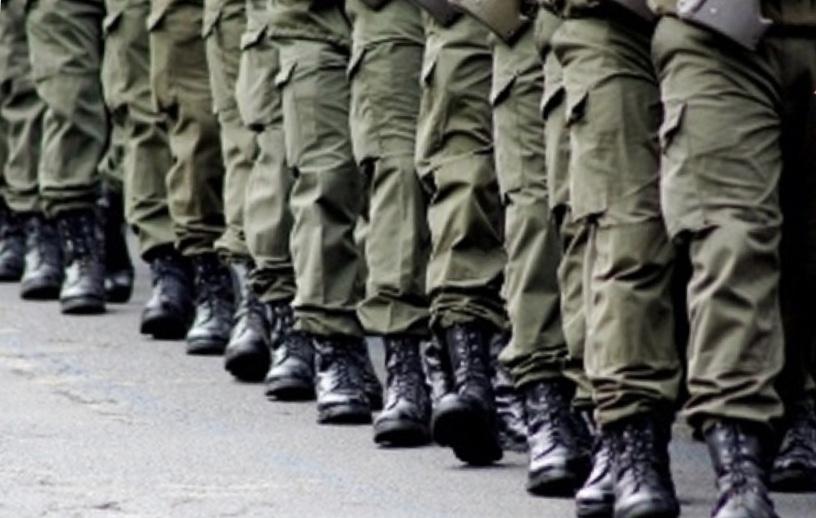Law No. 44.18 related to military service, which was approved, on Monday, during the Ministerial Council, chaired by King Mohammed VI, affirms that, according to the provisions of Article 38 of the Constitution, male and female citizens contribute to the defense of the homeland and its territorial integrity. For this purpose, they are subject to military service in accordance with the terms and conditions prescribed by law.
Thus, according to Article 4 of the aforementioned law, the period of performing military service is 12 months, and the age of submission to it ranges from 19 to 25 years.
According to the first article of this law, temporary or final exemptions may be granted, the conditions of which are determined by an organizational text, for certain reasons, especially physical or health disability that is proven by a medical report issued by the competent public hospital training services, or family endurance or study continuation. .
According to Article 2 of this text, persons who have been sentenced to a criminal penalty or imprisonment for more than six months are excluded from military service, unless they receive rehabilitation.
As for persons who have not performed their military service, for whatever reason, they may, when circumstances permit, perform it, in accordance with Article 3.
However, persons over the age of 25 who have benefited from an exemption for one of the reasons stipulated in Article 1 can be called up to perform their military service up to the age of 40, if the reasons for the exemption are absent.
Article 5 indicates that at the end of military service, recruits are included in the reserves of the Royal Armed Forces in accordance with the legislation in force.
Similarly, Article 6 of the bill stipulates that conscripts are subject to military laws and regulations, especially Law No. 108-13 on military justice, Law No. 12-01 on basic guarantees granted to military personnel in the Royal Armed Forces and Dahir No. 1-74-383 on By approving the general discipline system in the fold of the Royal Armed Forces, noting that they receive ranks according to the established hierarchy.

If necessary, conscripts who possess technical or professional qualifications, after completing the common basic training governed by the requirements of Articles 37 and 38 of the General Discipline System in the fold of the Armed Forces, may carry out specific tasks within public administrations with the permission of the military authority, which determines Conditions and duration, according to Article 7.
Article 8 indicates that conscripts who do not belong to the categories referred to in Article 14, especially employees and members of public administrations, benefit from wages and compensations, the percentages of which are determined by regulatory texts, highlighting that wages and compensations are exempt from any deduction, tax or otherwise, stipulated it in current legislation.
On the other hand, Article 9 confirms that conscripts are treated according to the same conditions applicable to other military personnel in the Royal Armed Forces, however, clothing and supplies are free of charge, regardless of military rank.
Article 10 adds that conscripts, like military personnel, benefit from medical treatment in military hospitals, health coverage, death and disability insurance, and medical and social assistance.
For its part, Article 11 stipulates that the damages suffered by conscripts during their military service, as is the case for active military personnel, are covered by death and disability insurance.
The recruits are discharged at the end of their military service, according to Article 12, which indicates that the regiment can discharge all or some of the military service before the end of its legal term or keep it after it, or re-call it in accordance with current legislation, if circumstances so require.
For its part, Article 13 confirms that conscripts are obligated, even after their demobilization, to the duty of reservation and protection of defense secrets, especially everything related to facts, information and documents that they have seen on the occasion of military service, and they are subject, in this regard, to the penalties stipulated in the legislation in force. .
Without prejudice to the contrary legislative and regulatory provisions, employees and agents of public administrations, territorial collectivities, employees of public institutions and contracting and other bodies subject to Law 69-00 relating to the financial control of the State over public enterprises and other bodies, are placed at the disposal of the National Defense Department during the period of military service.
Article 14 recognizes that they retain, in this regard, their right to promotion, retirement, bonus and social reserve in their original framework, adding that they also benefit from death and disability insurance and medical and social assistance, as is the case for active military personnel. The shares or contributions related to these rights are borne by the state.
At the end of their military service, they are reintegrated into their original framework, according to the aforementioned article.
Finally, according to Article 15 of the aforementioned law, persons subject to military service, who are summoned by the competent authority for the purpose of registering or selecting them in a tribal manner, and who refuse to appear before that authority, without a valid reason, shall be punished with imprisonment from one to three months and a fine of 2000 to 5000 dirhams.
